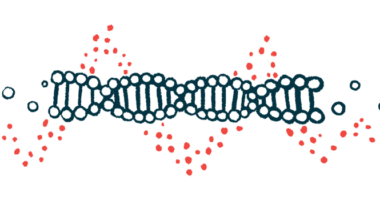Staying Positive as Someone Affected by Rare Disease

No matter what you’re going through or where you are, know you are not alone.
Suffering from a rare illness like hereditary ATTR amyloidosis (hATTR) is filled with daily challenges, and no two days are alike. I know this not because I am a sufferer but because my spouse was diagnosed with the disease in 2013. We have always walked this journey together, along with our children and close friends.
Although the experience has brimmed with difficulty, we remind ourselves that as long as we are breathing, we still have a lot to give. No matter what life brings, we all have a part to play. We don’t exist merely to live off what has been provided to us; more importantly, we must give back to our surroundings. Our environment needs us.
So when you wake up in the morning, be intentional about how you will make the best use of your day.
You may be thinking that it’s easy for me as a healthy person to preach on the subject of wellness. This isn’t quite true. Contrary to common belief that I am better off than my husband, I still struggle mentally, emotionally, and even physically as his caregiver. The severity of impairment is different, but the consequences of his affliction touch everyone in our family.
With this in mind, how does anyone affected by this hereditary disease manage to stay positive? I have done some reading, and following are a few areas I have found helpful.
Don’t be pessimistic
A study reported in the journal Psychological Science found that optimism tends to encourage a stronger immune response than pessimism. Psychological scientists confirmed this when they injected law students with a material that would provoke an immune response multiple times over six months. During more optimistic times, students demonstrated a more robust immune response.
Additionally, according to the Mayo Clinic, studies have found that optimism can result in a reduced risk of cardiovascular disease and an increased lifespan.
Separate assumptions from facts
Because the amyloid protein can build up and harm multiple organs at once, it’s often challenging for hATTR sufferers to distinguish between disease symptoms and side effects of food or medication. Hence, it is vitally important for both patient and caregiver to understand the condition.
When my husband complains that he is not feeling well, I always ask him to explain what he means. It’s misleading when patients are vague about they feel, and unless they can separate what they’re thinking from what’s happening, negativity can easily take root.
One way to mitigate this is to write down the symptoms, read up on any medication side effects, and ring the doctor about any questions.
Practice an attitude of gratitude
Every day you are here is a good day. According to a study conducted by the University of California, San Diego’s School of Medicine, feeling grateful reduces levels of stress hormones like cortisol by 23%, as Today reported.
Plan to achieve a goal each day — and I don’t mean run a marathon. A simple act of taking a friend out for lunch or going for a stroll can improve your mood and energy levels, plus reduce anxiety.
As I mentioned above, you are not alone on this journey. Others are facing the same issues as you. The important thing is to not dwell on negative outcomes but gear your mind to achieve daily miracles.
“The miracles in fact are a retelling in small letters of the very same story which is written across the whole world in letters too large for some of us to see.” ― C.S. Lewis
***
Note: FAP News Today is strictly a news and information website about the disease. It does not provide medical advice, diagnosis, or treatment. This content is not intended to be a substitute for professional medical advice, diagnosis, or treatment. Always seek the advice of your physician or other qualified health provider with any questions you may have regarding a medical condition. Never disregard professional medical advice or delay in seeking it because of something you have read on this website. The opinions expressed in this column are not those of FAP News Today or its parent company, Bionews, and are intended to spark discussion about issues pertaining to familial amyloid polyneuropathy.







Leave a comment
Fill in the required fields to post. Your email address will not be published.